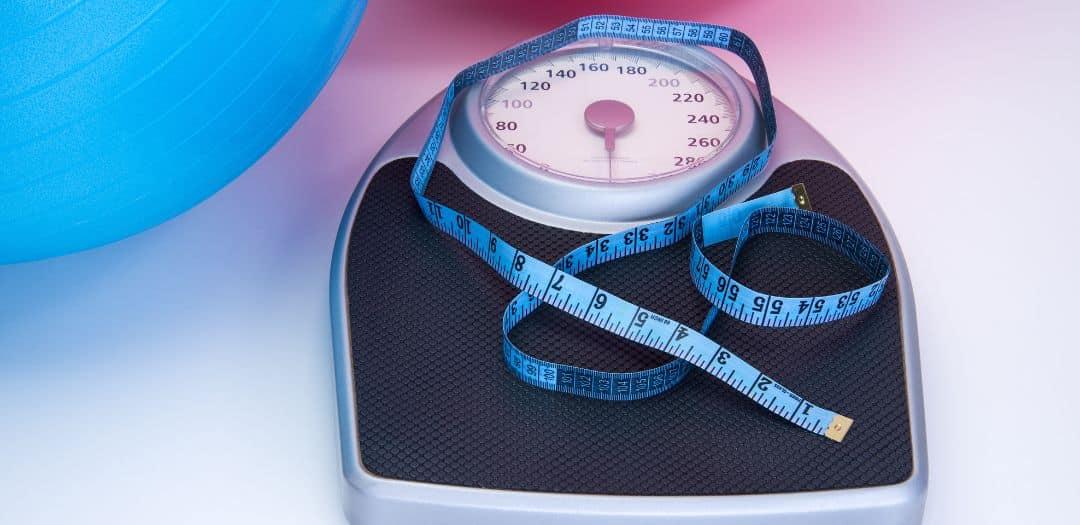Why The Scale Lies About Your Progress
Experts tell us that we should weigh daily, or at least weekly, to gauge weight loss progress and prevent rebound weight gain, but it can be incredibly frustrating if the scale doesn’t show the number you want (or expect).
So, why does the scale lie?
1. It’s Just a Number
The scale measures how much you weigh in pounds or kilograms. It does NOT measure:
- Fat percentage
- Muscle mass
- Health
- Fitness
- Beauty
- Worth
While the medical community puts a lot of emphasis on the importance of achieving and maintaining a healthy weight, even medical professionals agree that the number on the scale cannot be viewed in isolation.
Instead, consider one (or more) of these great ways to measure progress without a scale:
- Energy levels
- The overall feeling of vitality/wellness
- Number of sick days
- Number of healthy vs. unhealthy meals in a week
- Days (or minutes) of exercise
- Ease in everyday activities, like climbing stairs or chasing after your kids
- How strong you feel
- How toned you look
- Clothing size
- Ring size
- Inches lost (waist, hips, thighs, etc.)
- Blood sugar / A1c
- Cholesterol levels (LDL, HDL, triglycerides)
- Blood pressure
2. It’s Only a Snapshot

Weight should be used as an overall trend, not a day-to-day measure of progress.
It’s normal for weight to fluctuate by 2-4 pounds (or even more) in a single day.
So, it’s important that weight is viewed as a piece of data in a larger trend over time… not a single number that determines whether or not you’re making progress at this exact moment in time.
Doctors generally expect phentermine users to lose at least 5% of their starting body weight in three months´ time. There are no daily weight loss goals – and that’s for a reason.
On the flip side, just as weight can fluctuate a lot from day to day, it can also stay stagnant for frustrating long periods of time. Weight loss plateaus happen.
It’s perfectly normal for the number on the scale to get stuck for a few days, or even a few weeks, at a time. Thankfully, this does not mean that you’re not making progress.
It’s likely you’re still losing inches, building fitness, and improving your health, so don’t get hung up on one little number!
Still, if your weight isn’t budging after several weeks, consider an over-the-counter supplement like PhenQ to help get your weight loss journey back on track.
3. Weight Fluctuates
Most of us have noticed that weight changes from day-to-day, and even morning to night, but why does weight go up and down so dramatically, even when we’re eating well and exercising?
Here are a few major reasons:
Changes in Glycogen Stores
Glycogen is how our body stores quick fuel. It is stored with a relatively large amount of water, so weight fluctuates significantly according to the current level of glycogen.
Many people lose a lot of weight in the first week of a new diet or exercise program.
This is because the body tends to draw on glycogen stores to make up for the lower intake (or more exercise), which uses up this fuel source and produces a dramatic drop in water weight.
Likewise, if you eat a carbohydrate-heavy meal, your body will temporarily store those nutrients (and the associated water) as quick-acting fuel, which is why you may briefly gain weight after a high-carb binge.
Increase or Decrease in Sodium Intake
Eating too much sodium can also cause a jump in weight due to the body’s tendency to retain water.
Our bodies need a very specific ratio of fluid to electrolytes in the blood, so if you eat too much salt or drink too much water, the body will hold onto water in an attempt to reestablish that balance.
For this reason, it’s normal to gain a couple of pounds if you’ve eaten more salt or processed foods than usual in the last couple of days.
Different Workouts
Different workouts will affect your weight in different ways.
For example, running outside on a hot day (or other forms of intense cardio) will cause your weight to drop temporarily because you sweat out a lot of water weight.
On the other hand, pumping iron (or other forms of strength training) will prompt your muscles to retain water to help rebuild the tears. These stores help muscles grow bigger and stronger over time.
Regular Hormonal Changes
Many women retain water (and gain weight) just before their period.
Research shows that bloating and water retention are highest on the first day of a woman’s period, then gradually decrease for the first half of her cycle before starting to increase again in the two weeks leading up to another period.
If you notice your weight fluctuating over the course of the month, or seem to be gaining weight suddenly, consider whether your menstrual cycle might be to blame.
Certain Medications
Some drugs affect water retention, causing a temporary increase in weight, while others affect how your body uses and stores glucose, which can lead to more permanent fat storage and weight gain.
How to Help the Scale “Tell the Truth”
To minimize fluctuations in weight:
- Weigh yourself at the same time each day
- Always wear the same (or no) clothes
- Use the same scale in the same location every time
If your weight fluctuates a lot and you have time, it may also be useful to take full-body pictures and/or track inches lost over time.
To track inches, record measurements for your waist and any other areas of interest (e.g. bust, chest, hips, thighs, calves, upper arm, forearm) and then re-check those same measurements 2-4 weeks later.
Overall: if weighing yourself positively motivates you, go for it! On the other hand, if daily weigh-ins on the scale make you feel like a failure, focus on another measure (like how you feel or clothing size) instead!






